We caught up with the brilliant and insightful Gordon Jackson a few weeks ago and have shared our conversation below.
Gordon, looking forward to hearing all of your stories today. In our experience, overnight success is usually the result of years of hard work laying the foundation for success, but unfortunately, it’s exactly this part of the story that most of the media ignores. So, we’d appreciate if you could open up about your growth story and the nitty, gritty details that went into scaling up.
Throughout my media career – at least in stature – I have been fortunate to scale up in my profession primarily through a combination of building a good reputation, always providing great quality in my body of work and the ability to take on major tasks in my industry.
I have fortunately succeeded in becoming the consummate self-taught worker.
SCALING UP PROACTIVELY, NOT REACTIVELY
For me, that meant continuing to work on and improving my craft; remaining as a positive and productive force within my working circle; and being in the right position for potential advancement. I was not afraid nor complacent toward performing scale-up tasks, even if it was not within my job description and that I was not necessarily getting paid for it.
One prime example was when I was a reporter and the managing editor became ill and had to take a few months off. I did not back down from the opportunity to fill in that role. No doubt, it was scary and extra stressful at first – and I made some mistakes – but I took the extra time to learn that job, along with mine. I had faith in my ability to learn that job and developed into a bonafide managing editor. That managing editor came back and took his old position, but I was able to apply for an editor’s job later in my career.
CHECKING MY ATTITUDE
“Having a positive attitude” was not just a sappy, nerdy term; I never took it as having to be smiling, giddy and bubbly all the time. In any working environment, things will get highly stressed and go wrong. If your company is accomplishing anything of importance, believe me, you will have plenty of moments that will test you. I became aware ready to handle duties, not just within my own job skill, but with others throughout the company.
Sometimes, it is easy to be envious of the person or people above you, especially if you find that person as a “bad boss.” I learned to reverse that attitude, not perpetuate it. I focused on the core mission of my assignment and/or job and still assisted that person in completing the project, in a way that make both of us look good.
Further, whenever I was in the situation of having a “bad boss,” I made sure to treat my subordinates better when I received that equivalent opportunity. If you are fortunate enough to scale up to that position – be better. Treat your subordinates better and you will earn more respect.
WORKING AT “EYE LEVEL”
Many of my writings and editing assignments were on high-profile people and stories, such as a championship sporting event, major concert or a significant political or news event.
What I learned to do was to look at the high-profile people I was interviewing at eye level, as much of a “regular person” as possible not assuming such people were too elite to speak to me, but also approaching them with the utmost respect. I did not attempt to “dig up dirt” on that person to make them look bad at the expense of making me look good. I was able to develop a good working relationship with a lot of significant people.
DO THE DILIGENCE ON THE RESEARCH
I did the research on my assignments to attain as many facts, figures and history that l could. When I did thorough research and implemented it into my assignments, it came out in my story or writing project.
My main lesson has been being in position to advance to more responsible positions.
Finally, I have remembered to “throw the rope back.”
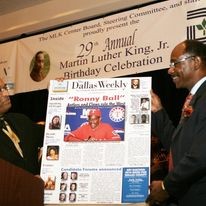
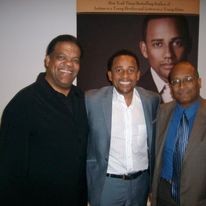
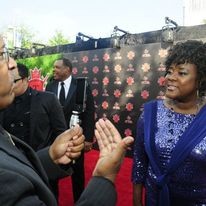
Gordon, love having you share your insights with us. Before we ask you more questions, maybe you can take a moment to introduce yourself to our readers who might have missed our earlier conversations?
I, Gordon M. Jackson, Jr., work as President/CEO of GMJ MEDIA, a Media Management and Media Services firm that has focused on freelance writing, publicity management and ghostwriting. I have amassed over 36 years of experience at all capacities in the newspaper and media industry, primarily with African American publications and media outlets. My roles have run the gamut from distributor to advertising executive to general assignment reporter and managing editor. I have also garnered ample experience as both a radio and television, newscaster, news anchor and sports broadcaster.
The number of celebrities and prominent citizens I have been fortunate to interview is too numerous to count. The many major events I have covered include the 2008 and 2012 Democratic National Convention, six Super Bowls, The Final Four, the NBA All-Star Game, several Essence Music Festivals, the Congressional Black Caucus Legislative Summit and others. Jackson has been active in the community through several venues, including the Texas Black Sports Hall of Fame
Following my passion for sports and a hidden desire to report and write the news, I finished a small broadcasting course in Denver, Colorado and began looking for broadcasting positions. I landed upon the Denver Weekly News, the metroplex’s premiere African American newspaper. Alongside helping deliver the newspapers and selling advertising, I started covering local high school and small college athletics.
Discovering my flair for writing and getting good responses from the public, I gradually expanded my coverage to the major sports teams (Denver Broncos, Denver Nuggets, Colorado Buffaloes, etc.) and general news in the community. In a self-taught mode, I gradually took on more responsibilities at the newspaper to the point of being appointed the managing editor.
The rest, as they say, is history as I have gone on to become editor/senior reporter for several other publications.
As a General Assignment Reporter for the Dallas Weekly, I wrote several cover stories that changed the general perspective of the issue being covered, thus changing how it was depicted in the general news.
I conducted a one-on-one Q&A interview with an embattled principal of Dallas’ top magnet high school accused of incompetent management at the school. After my story was released, while she did not return to that particular school, the school board and district management formally vindicated her from any wrongdoing, which stopped short of terminating her completely and allowing her to later retire on her own terms.
In another story, Black employees at one of the state’s top bread baking companies reported of enduring several modes of severe mistreatment at one of the company’s main plants, which drew protest marches from community leaders. My cover story led to an agreement with community leaders to improve working conditions and the hiring of the very first Black manager in the history of the bread company.
There have been other such stories. I have covered numerous important in-depth stories within the Black community that often got little attention or were totally ignored from the mainstream press. I profiled notable and sometimes controversial people in a more accurate and constructive perspective from the way other media sources attempted to depict such people.
In sports, I covered the Denver Broncos winning a Super Bowl, the University of Colorado Buffaloes winning a football national championship and the Texas Rangers going to the World Series.
When my media skills have switched in the direction of public relations, promotional or communications work, one of my most beloved assignments has been being the biographer for the Texas Black Sports Hall of Fame. For 20 of the past 25 years, I have combined my passion of sports, my writing skills and a deep sense of African American history to completing biographies/profiles of the greatest Black sports figures in the history of the state of Texas. These iconic athletes, coaches and administrators are honored annually by the African American Museum of Dallas, located inside Fair Park, Dallas, Texas. I have also demonstrated my broadcasting skills by hosting the Friday night reception held before the Saturday afternoon induction ceremonies.
I do need to include one of my current endeavors, as Media Liaison for Jubilee Theatre, helping promote the tremendous work the theatre company has accomplished in chronicling the African American experience through the theatre and arts.
For you, what’s the most rewarding aspect of being a creative?
In my self-proclaimed role as a self-educated Black historian, I have the grand opportunity of telling stories to the public while additionally instilling deep senses of history into my work at the same time. That way, my audience not only receives my stories or content at face value or just at the surface; they have the chance to better understand why that story is told the way it is. I am more developing the ability to tie in real-life stories with their surrounding historical accounts in a way that helps give my content more relevance and legitimacy.
EXAMPLES:
I have a “white paper:” “Breakdown 42: Jackie Robinson and the Great Institutions that Propelled Him to Immortality.” It breaks down the nine Black institutions that helped make Jackie Robinson the iconic figure he is known as today;
I have previously mentioned being a Biographer for the Texas Black Sports Hall of Fame;
I wrote an article on how former Dallas-based singer and songwriter Willie Hutch came to write the song “I’ll Be There” for the Jackson 5;
I am working on a white paper which will be called “From Birth of a Nation to Black Panther and Beyond,” that will chronicle a thorough history about Black people in the film industry.
This added component helps me give stories and/or content more substance, making it all entertaining, informational and educational at the same time.
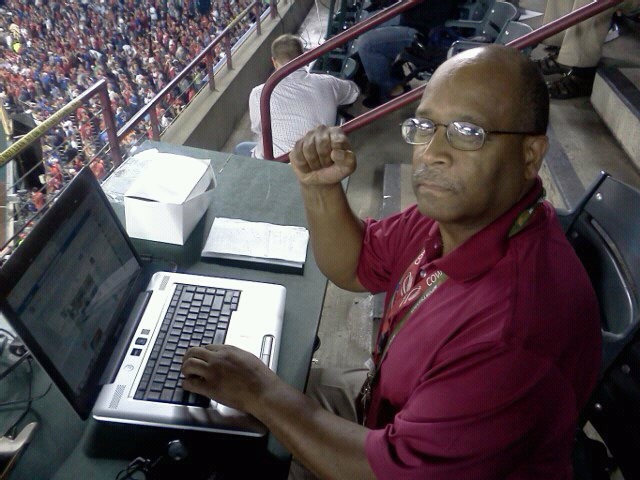
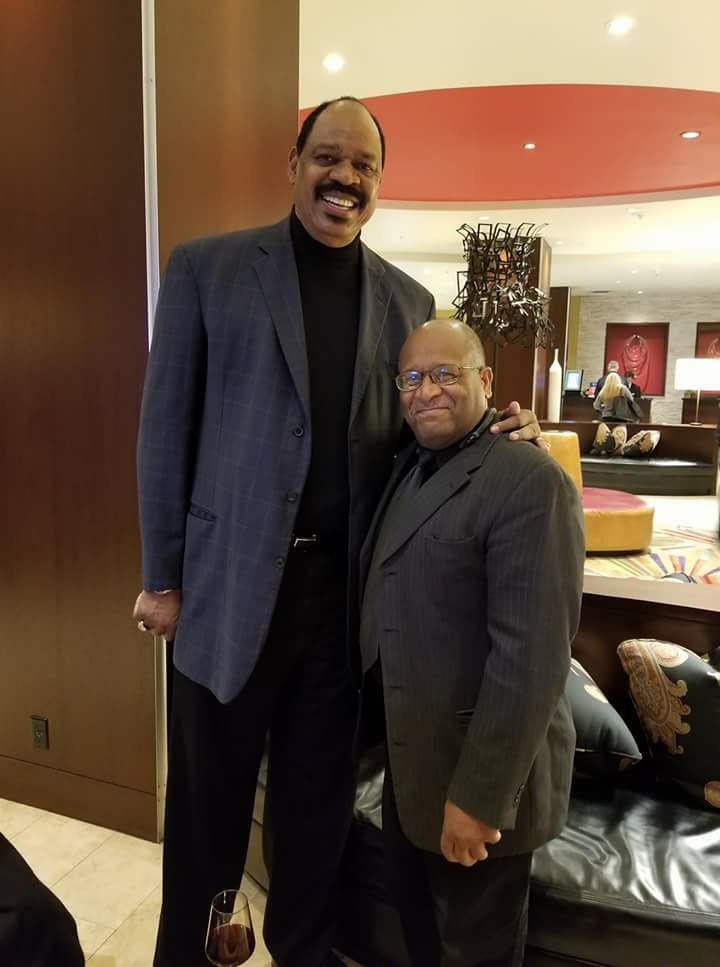
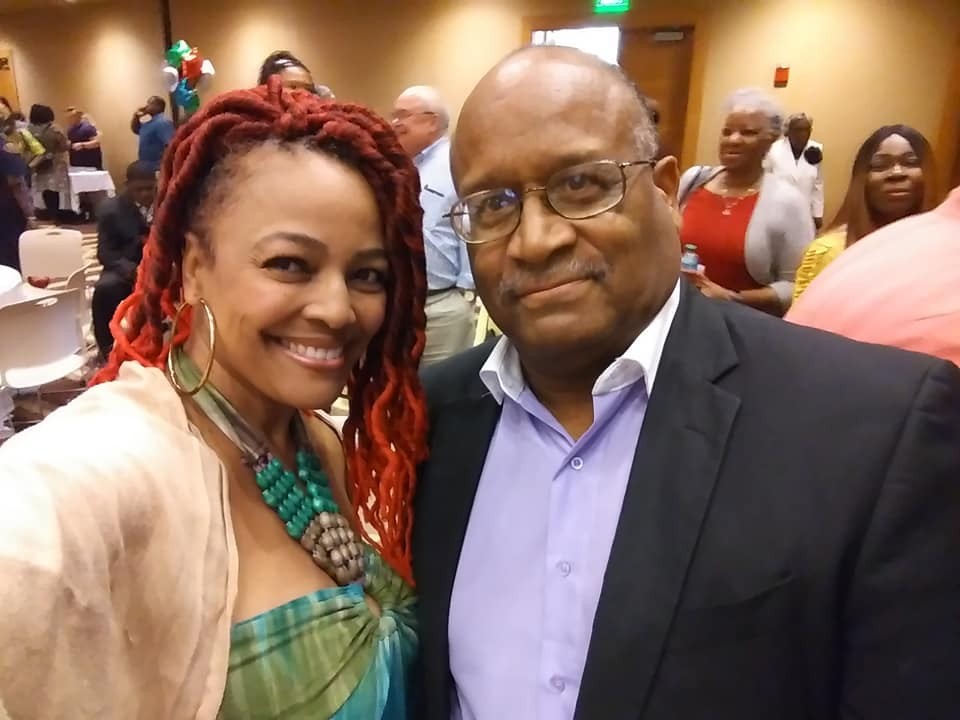
Can you share a story from your journey that illustrates your resilience?
Even with some of my most high-scale work in the media, it was not always full-time or well-paid. Therefore, I did have to pursue other work. As I look back, the key element to me was that – no matter what my job disposition was, whether I was a convenience store clerk, a gas station attendant, an unarmed security guard, or working a variety of temp jobs – I continued to think of myself as an editor/writer/reporter/broadcaster FIRST AND FOREMOST, and never defined myself as the “other” job I was working.
On my days off and hours before and after work, I focused on my craft.
Also, at times when I did not have formal transportation, as in having my own running car, I learned the bus system to still go to my writing assignments, even if sometimes it took me an hour and a half, one way, to get there.
At one time, I worked the graveyard shift, thus covering an evening or night event (a ball game or a banquet), then catching the bus to my night job (I was not always on time, either).
There was more than one occasion when I had to “call home for money.”
Therefore, when I got to the point of having a full-time editing/reporting job, I never took that for granted, continuing to sharpen my craft, so that my situation remained that way.
My resiliency and tenacity defrayed any thoughts of totally giving up my media work and settling for the “day job.”
Contact Info:
- Facebook: Gordon Jackson
- Linkedin: https://www.linkedin.com/in/gojackson/
- Twitter: @gordyjackjr
- Other: Email: [email protected]
Image Credits
Gordon Jackson at World Series photo by Cedric Bailey Gordon Jackson main photo by Deborah Kellogg Gordon Jackson with Loretta Devine photo by Deborah Kellogg


